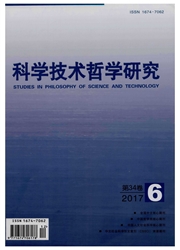

 中文摘要:
中文摘要:
意义整体论及其与反整体论的争论是心灵哲学的意向性或意义研究向纵深推进的一个产物,所关心的前沿焦点问题是:每个意义的个体性的条件或原因是什么,是否应根据它们所随附的内在物理属性而将它们个体化。随着个体主义和反个体主义围绕上述问题所作研究及争论的深入,意义整体论作为一种综合折中的理论脱颖而出。反整体论针对整体论的观点及论证作了全面的批判,引发了两者的唇枪舌战。意义整体论认为,意义是由有整体论性质的东西决定的,而反整体论认为,符号的意义不受它与其他符号关系的影响。两者的创造性论证和争论不仅深化了对意义的本质及决定条件的认识,而且对心灵哲学乃至形而上学的整体论研究也有推动作用。
 英文摘要:
英文摘要:
The dispute between holism and anti-holism in the study of meaning is the result of the profound study of intentionality or meaning in philosophy of mind. It concerns the individual conditions or reasons of each meaning,and whether they should be individualized according to the intrinsic physical properties they are supervenient on.With the deepening research and debates on individualism and anti-individualism around the above-mentioned problems,meaning holism emerges as a kind of comprehensive and balanced theory. Anti-holism made an overall criticism of holism,which triggered widespread debates between the two. Holism thinks that meaning is determined by substances with the holistic properties,while anti-holism thinks the meaning of a symbol is not affected by its relations with other symbols. The creative argument and debate between the two have not only deepened the understanding on the nature and the decisive conditions of meaning,but also produced a tremendous boost to the study of philosophy of mind and even to the holistic study of metaphysics.
 同期刊论文项目
同期刊论文项目
 同项目期刊论文
同项目期刊论文
 期刊信息
期刊信息
